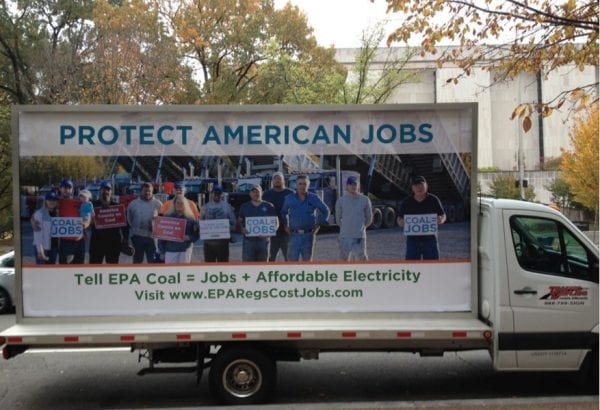
TPA Statement to Environmental Protection Agency’s DC Listening Session
Taxpayers Protection Alliance
November 7, 2013

Today, TPA Communications & Policy Manager Michi Iljazi gave this statement to the EPA at their DC Listening Session:
Good morning, my name is Michi Iljazi with the Taxpayers Protection Alliance.
Thank you for the opportunity to speak today about EPA’s plan to regulate carbon dioxide emissions from coal-fired power plants.
The Taxpayers Protection Alliance is concerned about EPA’s carbon regulations because of their impact on the use of coal to produce affordable and reliable electricity and the EPA’s role in these regulations. Coal plays a crucial role in providing electricity to consumers in virtually every state in the nation. For example, coal provides more than one quarter of the electricity in 29 states with a collective population of more than 175 million people. Unfortunately, EPA regulations have already contributed to the closure of 300 existing coal units in 33 states. And recently proposed regulations would ban new, efficient state-of-art coal plants. These regulations affect consumers and taxpayers deserve an agency to look out for their interest.
To begin with, we disagree with EPA’s decision to regulate greenhouse gas emissions under the Clean Air Act. EPA regulations are an ineffective and economically harmful way to address climate change. But, since EPA is developing these regulations anyway, I want to offer the perspective of the Taxpayers Protection Alliance.
EPA is focused on reducing carbon dioxide emissions from coal-fired power plants as a way to address global climate change. However, carbon dioxide emissions from the U.S. coal fleet represent only 3 percent of global greenhouse gas emissions. Reducing carbon dioxide emissions from the U.S. coal fleet will increase energy prices without having any meaningful effect on global climate change. Further, the U.S. electric sector has already reduced its carbon dioxide emissions more than any other sector of the economy. U.S. power plants have reduced carbon dioxide emissions by 16 percent below 2005 levels, and carbon dioxide emissions from coal-fired power plants have declined by almost 24 percent.
With that in mind, we believe EPA should follow these principles in developing carbon regulations:
First, EPA’s carbon regulations should do no harm. Carbon regulations should not interfere with affordable electricity prices and reliable electricity supplies, especially in states that rely on coal.
Second, EPA’s carbon regulations should provide states with all the flexibility they need in order to develop plans that suit their unique circumstances, including continuing their reliance on coal if they choose that approach. Also, EPA must give states ample time to develop and implement their plans.
Third, coal plant owners are expected to invest over $30 billion in the near-term to further reduce emissions of conventional air pollutants. EPA must ensure that carbon regulations do not cause additional premature closures of coal units and, therefore, stranded investments in emission controls.
Finally, EPA should remove regulatory barriers to efficiency improvements at existing coal-fueled power plants. Efficiency improvements are a cost-effective way to reduce emissions, while maintaining affordable and reliable operations. EPA should remove barriers to these projects.
Thank you for your attention.
